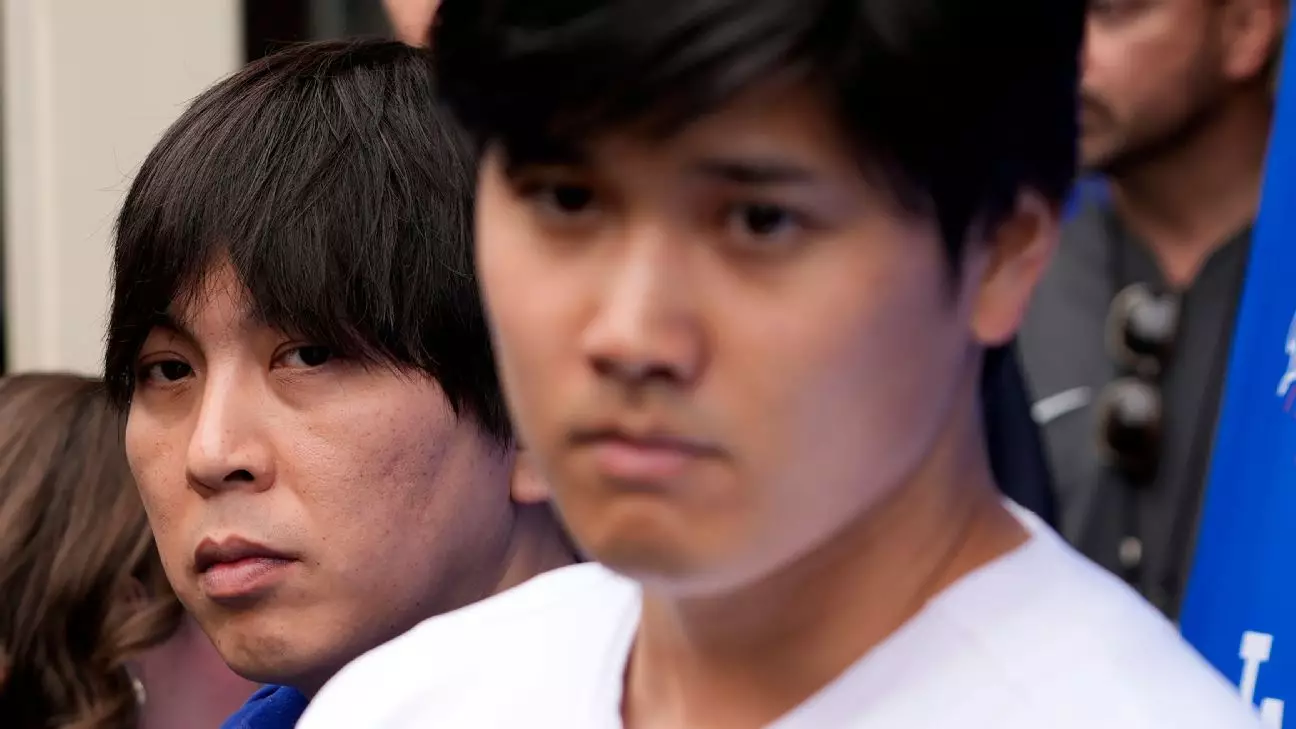In a shocking turn of events that has garnered significant media attention, baseball star Shohei Ohtani is embroiled in a legal controversy involving his former interpreter, Ippei Mizuhara. Allegations have surfaced indicating that Mizuhara misappropriated substantial sums of money from Ohtani, leading the athlete to seek the return of valuable baseball cards purchased with those funds. This case brings to light the complex intersection of trust, financial mismanagement, and the potential ramifications for both parties involved.
According to recently filed court documents, Mizuhara is accused of illegally accessing Ohtani’s bank account as early as November 2021. These documents detail a sophisticated scheme in which Mizuhara allegedly altered Ohtani’s security settings, enabling him to impersonate the star player to authorize wire transfers. Over this period, Mizuhara purportedly drained approximately $17 million from Ohtani’s accounts, a staggering betrayal given their close relationship. The purchase of nearly $325,000 worth of baseball cards via online platforms such as eBay and Whatnot highlights the depths of Mizuhara’s fraudulent activities.
The fallout from Mizuhara’s actions is monumental. In June, he pled guilty to multiple counts of fraud, specifically bank fraud and submitting a false tax return. These charges could lead to a lengthy prison sentence, possibly exceeding 30 years. Beyond incarceration, Mizuhara faces severe financial repercussions, including potential restitution payments to Ohtani and hefty tax liabilities to the IRS, estimated to exceed $1 million. Mizuhara’s status as a legal permanent resident additionally places him at risk of deportation to Japan, further complicating his future.
The Impact on Ohtani
For Ohtani, the implications of this legal battle extend beyond the realm of finance. The relationship he shared with Mizuhara spanned professional triumphs and personal moments, including key milestones in his illustrious career. Mizuhara was not only Ohtani’s interpreter but also acted as a confidant and supporter during significant events such as the Home Run Derby and Ohtani’s MVP award celebrations. This betrayal is compounded by the emotional toll it takes, emphasizing the profound disappointment of having a trusted ally turn against him.
Future Considerations
As the legal proceedings unfold, the baseball world watches closely. Ohtani’s request to reclaim the stolen collectibles symbolizes a powerful statement about accountability and the necessity of protecting one’s assets. This incident underscores the importance of vigilance in personal and professional relationships, particularly within high-stakes environments like professional sports. With Mizuhara sentenced to appear in court again in January, the resolution of this case will be pivotal not only for Ohtani and Mizuhara but also for the broader conversation surrounding trust and betrayal in professional relationships.
Ultimately, as Shohei Ohtani continues to excel on the field, the repercussions of his former interpreter’s actions serve as a cautionary tale about the vulnerabilities athletes face. A mix of emotional and financial turmoil is now part of Ohtani’s story, inviting discussions about loyalty, trust, and the lengths to which some individuals may go when tempted by greed. As the dust settles, it is evident that the consequences of Mizuhara’s actions will reverberate long after the legal battles are concluded.

